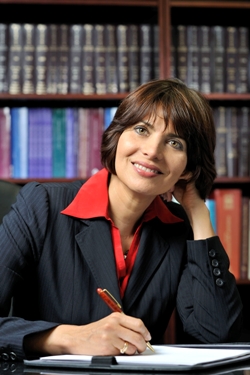Some of the best athletes participating in major American professional sports leagues were born outside of the country. Oftentimes, sports agents are confronted with an obstacle when very talented players seek to play in the United States, but have immigration problems. If an agent is also an attorney who handles immigration issues, then typically the problems can be solved in-house. However, if the agent does not have an immigration law background, that agent is wise to associate with an experienced professional who handles such matters.
 I recently spoke to Dr. Sara Coen (sara@scoenlaw.com), who is an attorney that handles a lot of immigration affairs for professional athletes. Dr. Coen owns a law firm in Boca Raton, Florida and is fluent in Spanish, French, Italian, Portuguese and English. She offered the following information regarding P visa requirements for Sports Agent Blog readers.
I recently spoke to Dr. Sara Coen (sara@scoenlaw.com), who is an attorney that handles a lot of immigration affairs for professional athletes. Dr. Coen owns a law firm in Boca Raton, Florida and is fluent in Spanish, French, Italian, Portuguese and English. She offered the following information regarding P visa requirements for Sports Agent Blog readers.
Overview
The P nonimmigrant employment visa category is reserved for foreign professionals that are athletes, entertainers and cultural performers. The person must seek to enter temporarily for the purpose of performing in a competition, event or performance. There are different visa classifications which include P1, P2, P3, and P4.
TIMING ISSUES: The validity of the P visa varies, and visa holders are admitted for the time necessary to complete their event, competition, or performance; the time may be extended. The visa may not exceed five years without an extension; the maximum time for extension is ten years for individual athletes.
P-1 VISAS
These visas are for athletes and group entertainers that have been internationally recognized as outstanding for a long and continuous period of time. Athletes must be “internationally recognized” (PI-A) or alternatively the beneficiary must be a person who performs with or is an integral or essential part of the entertainment group that has been recognized as outstanding in their discipline for a sustained period of time (P-1B); in case of a performer, the person must have sustained and substantial relationship with the group for a period of at least one year.
General Employee Requirements & Issues
- Must be an athlete part of a team or an entertainment group (at least two individuals).
- Must be “internationally recognized”.
- Must have at least one year of recognition as outstanding in the particular discipline or field. (requirement may be waived under certain conditions, like illness or exigent circumstances).
- Circus performers are exempt from international recognition and one-year requirement.
Time: An individual athlete may obtain a P-1A for five years, renewable for an additional five years. A petition for a team or an entertainment group as a P-1 may not exceed one year and neither a P1-B visas. However, extensions may be filed for both visas.
P-1A Documentation (ATHLETES)
- Evidence of international recognition.
- Athletic competition must have a distinguished reputation.
- Competition must require participation of the athlete or team with international reputation.
- Copy of the contract with major U.S. sports league or team and commensurate with the recognition.
- Plus any two of the following:
- Significant participation in a prior season in majors.
- International competition with a national team.
- Significant participation in a prior season of U.S. college or university.
- Written statement form U.S. official in sport about the individual or team’s international recognition.
- Written statement from an expert of sports media as to the international recognition.
- Team or individual ranking.
- Significant honor or award in sport.
- If the events will take place in multiple areas, an itinerary or schedule must be submitted with the P visa petition. The itinerary must set forth the dates and locations of the events.
Dr. Sara Coen sent me a lot more information about the various types of P visas; the only information posted above is with respect to the P-1A designation. I thank her for the brief introduction to athlete immigration and suggest that if you are interested in learning more, you contact Dr. Coen.
